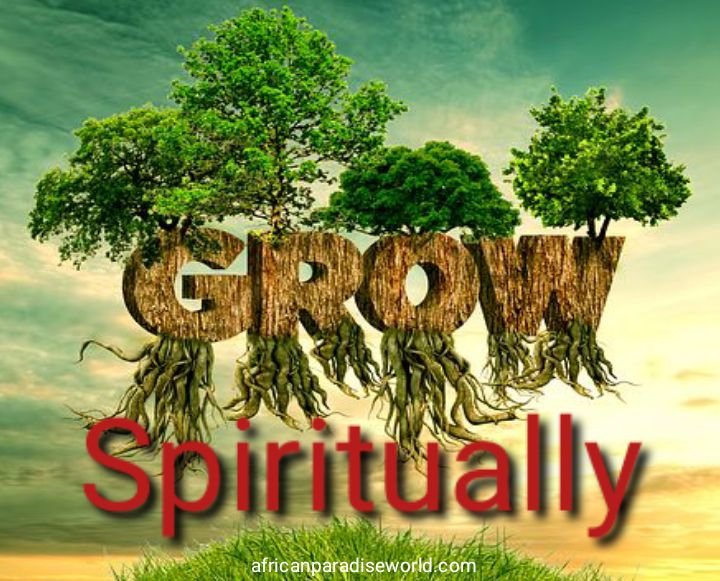· Christian Living · 9 min read
5 Transformative Spiritual Disciplines for Christians: Meditation, Silent Retreats, Fasting, Journaling & Mindfulness
Discover transformative spiritual practices for Christians: meditation, silent retreats, fasting, journaling, and mindfulness. Enhance your faith journey with these powerful tools.

5 Transformative Spiritual Disciplines for Christians: Meditation, Silent Retreats, Fasting, Journaling & Mindfulness
Spiritual disciplines play a crucial role in the life of a Christian. They are practices that help believers deepen their relationship with God, grow in their faith, and cultivate spiritual growth. In this article, we will explore five transformative spiritual disciplines for Christians: meditation, silent retreats, fasting, journaling, and mindfulness. We will delve into the benefits and practical applications of each discipline within the context of Christianity.
1. What are the benefits of meditation for Christians?
Meditation is a practice that involves focusing one’s mind and attention to achieve a state of inner peace and tranquility. For Christians, meditation has profound benefits both spiritually and mentally. It allows believers to quiet their minds and create space for God to speak to them through His Word and the Holy Spirit.
Meditation helps Christians develop a deeper understanding of Scripture by allowing them to reflect on its meaning and apply it to their lives. It enhances concentration on God’s presence, enabling believers to experience a greater sense of intimacy with Him.
According to a study published in the Journal of Psychology and Christianity, Christian meditation has been found to reduce stress, improve emotional well-being, and increase self-awareness. It fosters spiritual growth by nurturing a closer relationship with God and promoting a sense of peace and contentment.
As the Psalmist David said in Psalm 19:14, “Let the words of my mouth and the meditation of my heart be acceptable in your sight, O Lord.”
2. How can Christians incorporate meditation into their daily lives?
Integrating meditation into daily life can be a transformative practice for Christians. Here are some practical ways to incorporate meditation into your daily routine:
a. Find moments of stillness: Look for opportunities throughout your day to pause, be still, and connect with God. This can be done during your morning coffee break, on your commute to work, or as part of your bedtime ritual.
b. Choose a Christian meditation technique: There are various Christian meditation techniques to choose from. One common technique involves focusing on a specific word or scripture and repeating it silently with each breath. This helps embed God’s Word in your heart and enhances your concentration on His presence.
c. Use guided meditation resources: Guided meditation videos and apps specifically designed for Christians can be valuable tools to aid your practice. These resources provide soothing voice-over guidance that leads you through Christian mindfulness and meditation, ensuring that your journey is Spirit-led and rooted in Scripture.
As Christians, our meditation practice should always be centered on the Word of God and guided by the Holy Spirit. By incorporating meditation into our daily lives, we can deepen our relationship with God and experience His peace and presence in a profound way.
3. What are the benefits of silent retreats for Christians?
Silent retreats offer Christians an opportunity to disconnect from the noise and distractions of daily life and immerse themselves in a focused time of seeking God. These retreats typically involve extended periods of silence, prayer, reflection, and solitude.
The benefits of silent retreats for Christians are manifold. They provide a space for believers to listen to God’s voice without the usual distractions of life. In the silence, individuals can gain clarity, discernment, and direction as they seek God’s will for their lives.
Silent retreats also offer a time of spiritual refreshment and renewal. They allow believers to step away from busyness and busyness’s constant demands, providing an opportunity for rest and restoration in the presence of God.
According to a study published in Pastoral Psychology, silent retreats have been found to reduce stress, increase self-awareness, deepen spiritual growth, and enhance overall well-being. They offer a unique space for Christians to draw closer to God, experience His love and grace, and gain a fresh perspective on life.
4. Where can Christians find silent retreat locations?
Finding the right silent retreat location is crucial for a meaningful and transformative experience. Here are some places where Christians can find silent retreat opportunities:
a. Christian retreat centers: Many Christian retreat centers offer silent retreats as part of their programs. These centers often provide a serene environment conducive to reflection and solitude.
b. Monastic communities: Monasteries and convents often welcome individuals seeking a silent retreat experience. These communities have a rich history of contemplative practices and can provide a peaceful setting for spiritual growth.
c. Nature retreats: Natural settings such as mountains, forests, or coastal areas can serve as ideal locations for silent retreats. These environments offer a sense of awe and wonder, inviting individuals to connect with God through His creation.
Researching online directories, speaking with local pastors or spiritual directors, and seeking recommendations from fellow believers can help Christians find suitable silent retreat locations. It is essential to consider factors such as the length of the retreat, the specific focus or theme, and any necessary accommodations or logistics when selecting a retreat center.
5. What are the benefits of fasting for Christians?
Fasting is a spiritual discipline that involves voluntarily abstaining from food, usually for a specific period of time. In Christianity, fasting has been practiced for centuries as a way to draw near to God, seek His guidance, and humble oneself before Him.
Fasting has numerous benefits for Christians. Firstly, it helps believers develop self-discipline and self-control by denying their physical desires for the sake of spiritual growth. It teaches reliance on God’s strength rather than solely depending on earthly provisions.
Additionally, fasting can deepen one’s prayer life by creating an increased sense of dependence on God. It opens up space in our lives for greater focus on prayer, intercession, and seeking God’s will.
Fasting also helps Christians align their hearts with God’s heart. It can expose areas of sin, promote repentance, and foster a spirit of humility. When accompanied by prayer and meditation on Scripture, fasting can lead to spiritual breakthroughs and a deeper understanding of God’s purposes.
As Jesus said in Matthew 4:4, “Man shall not live by bread alone, but by every word that comes from the mouth of God.”
6. How can Christians incorporate journaling into their spiritual practice?
Journaling is a powerful tool for Christians to record their thoughts, prayers, and reflections on their faith journey. It provides a tangible way to engage with God’s Word, process emotions, and document the ways in which God is at work in their lives.
Incorporating journaling into your spiritual practice can have numerous benefits. Firstly, it helps Christians deepen their understanding of Scripture by allowing them to write down insights, questions, and revelations that come from their study of God’s Word.
Journaling also provides an avenue for self-reflection and accountability. By writing down their thoughts and prayers, believers can identify patterns, track progress in their spiritual growth, and discern areas where growth is needed.
Furthermore, journaling serves as a record of God’s faithfulness. Looking back on past entries can remind Christians of answered prayers, lessons learned, and moments of encounter with God. It fosters gratitude and strengthens one’s faith in God’s faithfulness.
To incorporate journaling into your spiritual practice, set aside regular time for reflection and write down your thoughts, prayers, and experiences. You can use a physical journal or opt for digital journaling platforms or apps that offer privacy and convenience.
7. How does Christian mindfulness differ from secular mindfulness?
Mindfulness has gained popularity in recent years as a practice that cultivates present-moment awareness and non-judgmental acceptance. While mindfulness practices can benefit individuals of any faith or background, Christian mindfulness differs in its focus and intention.
Christian mindfulness is rooted in the teachings of Jesus Christ and seeks to align one’s thoughts, emotions, and actions with biblical principles. It involves intentionally focusing on God’s presence, deepening one’s relationship with Him, and living in accordance with His Word.
Unlike secular mindfulness practices, Christian mindfulness acknowledges the role of the Holy Spirit in guiding and transforming individuals. It recognizes that prayer is not just sending loving thoughts but a powerful means of communicating with God who hears and answers.
Christian mindfulness also emphasizes the importance of self-examination in light of God’s truth. It encourages believers to reflect on their thoughts, emotions, and behaviors through the lens of Scripture, seeking alignment with God’s will.
As Christians, we are called to “take captive every thought to make it obedient to Christ” (2 Corinthians 10:5). Christian mindfulness helps us develop a heightened awareness of God’s presence, deepen our love for Him and others, and live intentionally for His glory.
8. How can Christians practice mindfulness?
Practicing mindfulness as a Christian involves cultivating a present-moment awareness of God’s presence in every aspect of life. Here are some practical ways Christians can incorporate mindfulness into their daily lives:
a. Scripture meditation: Choose a passage from the Bible and read it slowly and attentively. Reflect on the words and ask yourself how they apply to your life. You can also memorize a verse or passage and repeat it to yourself throughout the day.
b. Prayer of the breath: Focus on your breath as you inhale and exhale. With each breath, center your thoughts on God’s presence. Breathe in His love, grace, and peace, and exhale any worries or distractions.
c. Mindful gratitude: Take moments throughout the day to intentionally express gratitude for God’s blessings. Pause and observe the beauty of creation, give thanks for answered prayers, and acknowledge God’s faithfulness in your life.
Practicing mindfulness as a Christian is about intentionally turning your thoughts toward God, seeking His presence, and aligning your heart with His will. It is a transformative discipline that can deepen your relationship with God and bring about inner peace and spiritual growth.
In conclusion, meditation, silent retreats, fasting, journaling, and mindfulness are transformative spiritual disciplines that can greatly benefit Christians. These practices help believers deepen their relationship with God, nurture their spiritual growth, and experience His presence in a profound way. By incorporating these disciplines into their lives, Christians can embark on a journey of transformation and draw closer to the heart of God.



